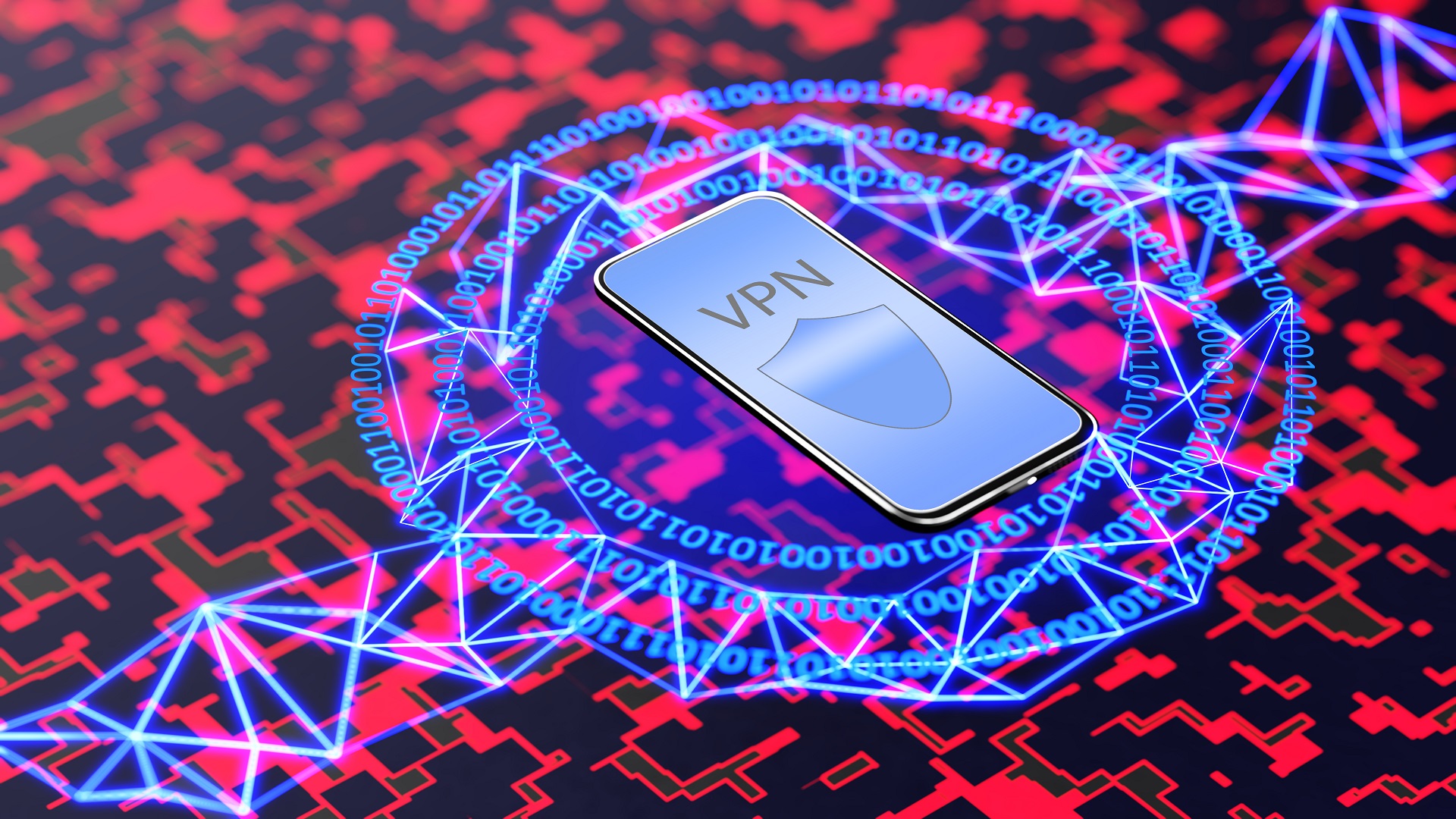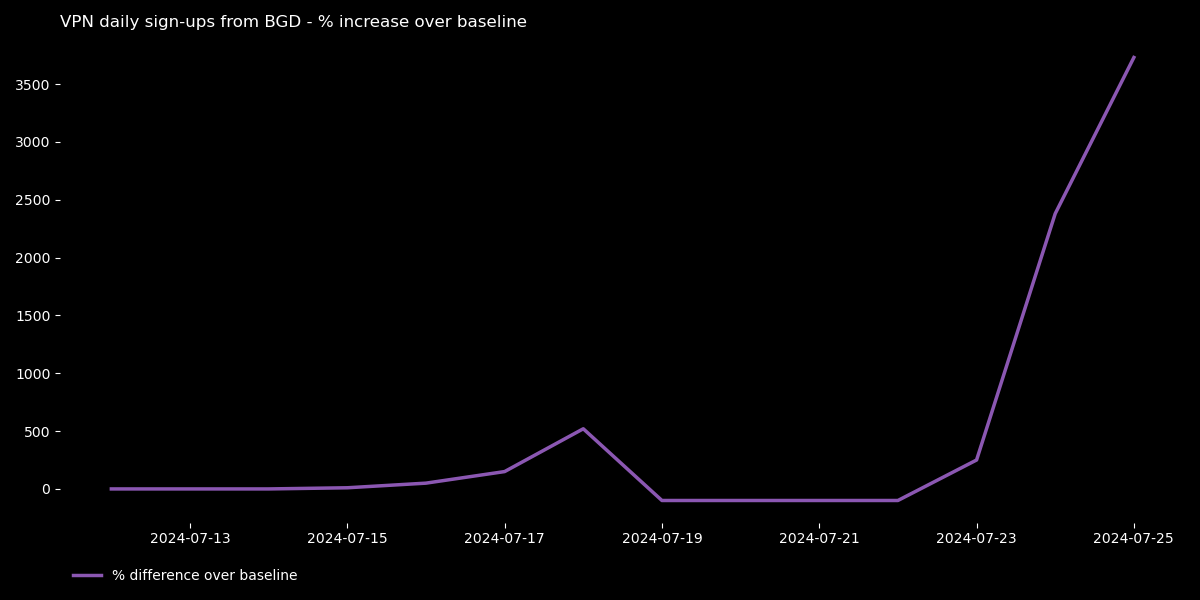Bangladesh social media censorship sees VPN use skyrocket
A VPN can help you grant access to blocked social media apps

People in Bangladesh have turned en masse to the best VPN apps to bypass ongoing internet restrictions in the aftermath of widespread anti-government protests.
The first spike in VPN usage was recorded on July 23, 2024, when authorities began to ease fixed-line internet restrictions after five days of complete internet shutdown.
Mobile connectivity was restored on Sunday, July 28. Yet, access to the likes of Facebook, TikTok, WhatsApp, and YouTube is still restricted at the time of writing. This explains why data shows VPN downloads and signups continue to be high across the region.
Bangladesh VPNs - over 7000% rise in usage
Let's look at some data.
As the graph below shows, the Swiss-based provider Proton VPN alone recorded a significant increase in usage in Bangladesh starting from July 23. The company confirmed TechRadar a staggering 3500% spike in signups above normal levels.
Other reports corroborate such a trend across the region. Experts at Top10VPN, for example, saw VPN downloads surging by 7043% compared to before the internet disruptions on July 24.
Despite registering a slow decrease starting from July 25, data coming from vpnMentor shows that VPN usage is still over 2500% higher than the weeks previous to the protests.

How a VPN can help against internet restrictions
"This episode of internet censorship speaks to the importance of maintaining an open and unfiltered internet," a Proton spokesperson told me. But, how can a VPN exactly help with that?
A virtual private network (VPN) is a security software that encrypts your internet connections and spoofs your real IP address. While privacy-conscious users have been using such software for a long time to boost their anonymity online, it's precisely due to their IP-spoofing skills that VPNs are becoming mainstream.
Elections are another big trigger of internet disruptions worldwide. With 2024 the biggest election year in modern history, VPNs are now especially crucial. This is why since March Proton VPN has been offering a free network of local anti-censorship servers to all users logging in from at-risk countries. Read more on Proton VPN election support here.
Every time you switch on your VPN app, you're asked to connect to one of its international servers - most providers boast a huge network across many countries worldwide.
Simply by choosing a server located outside your country, you will be able to trick your ISP (internet service provider) into granting you access to otherwise geo-restricted content.
This is the main reason, for instance, that people are using streaming VPN services to keep watching their favorite shows when traveling abroad. Likewise, VPN usage keeps rising everywhere as authorities increasingly restrict access to social media platforms, news outlets, and other popular websites - especially during times of political turmoil.
Proton recorded VPN usage spikes in 11 countries since January alone. Similarly to the Bangladesh case, most of them were linked with social unrest including Kenya at the end of June, New Caledonia in May, and Senegal in February.
With social media platforms being blocked in Bangladesh at the time of writing, VPNs remain a crucial tool if you're inside the country.
In case you're on the lookout for a reliable VPN service, I recommend heading to our dedicated best free VPN services page to get one of the most secure and reliable freebies. If you're willing to pay for a subscription, NordVPN is our top recommendation right now.
Disclaimer
We test and review VPN services in the context of legal recreational uses. For example: 1. Accessing a service from another country (subject to the terms and conditions of that service). 2. Protecting your online security and strengthening your online privacy when abroad. We do not support or condone the illegal or malicious use of VPN services. Consuming pirated content that is paid-for is neither endorsed nor approved by Future Publishing.

Chiara is a multimedia journalist committed to covering stories to help promote the rights and denounce the abuses of the digital side of life – wherever cybersecurity, markets, and politics tangle up. She believes an open, uncensored, and private internet is a basic human need and wants to use her knowledge of VPNs to help readers take back control. She writes news, interviews, and analysis on data privacy, online censorship, digital rights, tech policies, and security software, with a special focus on VPNs, for TechRadar and TechRadar Pro. Got a story, tip-off, or something tech-interesting to say? Reach out to chiara.castro@futurenet.com